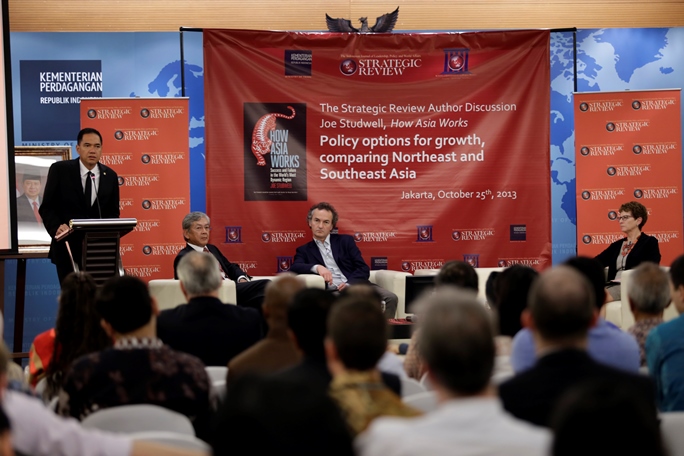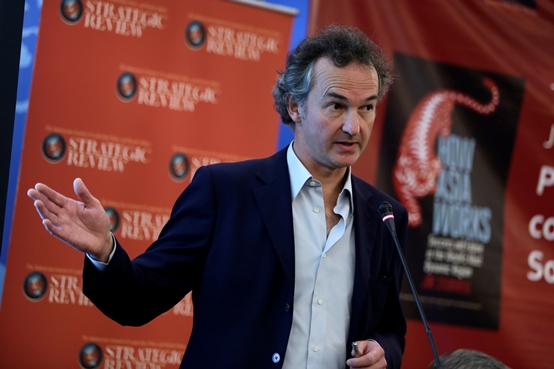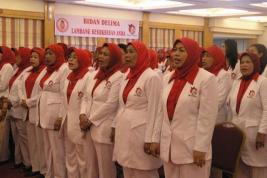
Location: Auditorium, Ministry of Trade
Some might call explaining Asia in three steps impossible, given its vastness, complexity and diversity. Yet how the region arrived at its position in the 21st century isn’t an incomprehensible mystery. One person who has unraveled it on more than one occasion is Joe Studwell, the British author and economic journalist, whose books include “The China Dream” in 2003 and 2007’s “Asian Godfathers.”
Studwell’s latest book, “How Asia Works” (Profile Books LTD, 2013), takes a similarly deep plunge into the region’s economy, analyzing the dynamic growth of East Asia and looking at why Northeast Asia has succeeded while Southeast Asia has been largely a toothless tiger. “How Asia Works” also contains a detailed look at the corrosive legacy of colonial agriculture in Indonesia, the country’s failed industrialization projects and the premature financial deregulation of the 1980s and 1990s.
In a review of “How Asia Works, the Financial Times stated: “Studwell’s thesis is bold, his arguments persuasive, and his style pugnacious. It adds up to a highly readable and important book.”
Studwell was the guest of honor for a Strategic Review author discussion on October 25. Gita Wirjawan, Indonesia’s minister of trade, opened the event and he was joined on the panel by prominent businessman Edwin Soeryadjaya.

In his remarks, Gita called Studwell “not only a person who understands Indonesia, but a person who has written insights that will be useful to Indonesia as a country and a nation, but also Indonesia as a member of the region.”
The book looks at the nine principle economies in the region: Japan, China, South Korea, Taiwan, Indonesia, Vietnam, the Philippines, Thailand and Malaysia.
“If you concentrate on these nine major economies, you can have a discussion about a region that has produced the biggest variation of development outcomes of any part of the world,” Studwell said in his presentation.
“What interested me in writing this book is ‘why?’ Why did we get massive variation in developmental outcomes?” he said. “Why does the Philippines, which had the best educational capital in the region, end up as the worst performer? Why does Taiwan, which had an illiteracy rate of 45 percent at the end of the Second World War, end up as one of the best performers?”

Studwell, who has been writing about Asian business for more than 20 years, wrote “How Asia Works” around three fundamentally important policy dividers: agriculture policy and land reform; manufacturing; and capital controls.
“My conclusion is that the outcomes in this region are not to do with endowments, they’re not to do with racial questions of who’s better at business or less good at business. They’re to do with policy,” Studwell said. “Policy is implemented by politicians. So ultimately, political choices of policy have made the difference in success and failure in the region.
“The winners in the region have been the people who got the most out of their human capital when skills were quite low,” he said.
Much of the conversation during the discussion revolved around Indonesia’s policy decisions and its future economic challenges and opportunities.
“It’s probably easy to be pessimistic about the future of Indonesia, knowing how Indonesia compares with more successful countries,” Gita said. “But I think there’s a lot of room here for optimism about Indonesia. The key is, how do we make sure that agriculturally we can be as competitive? And I think the interesting terms he uses in the book is that it’s not just about being self-sufficient, it’s becoming the most effective and efficient exporter.
“That sort of a paradigm has not percolated in the minds of many people from a policy-making and also nonpolicy-making standpoint.”
Guest panelist Edwin Soeryadjaya, the chairman and founder of Saratoga Capital, lamented infighting among Indonesian political parties, which he said harmed the country’s manufacturing sector.
“We have missed, probably, if you look at automotives. In Indonesia, we started at the same time as South Korea. The difference is, probably, in Korea they’re killing off non-performers. Here we try to accommodate, and as a result the best does not come out,” said Soeryadjaya, whose father founded Astra International, Indonesia’s largest vehicle manufacturer. “The lesson learned from that is that Indonesia has a lot of potential. Let’s not cry over spilled milk; let’s just do our best.”
He said Indonesia still has abundant resources and can realize projections that it will have one of the world’s largest economies by 2025.
“Perhaps with a good leader of the country, I’m very confident we can be, perhaps, not among the top five or six [economies] in 20 years but sooner,” he said. “All we need is a strong leader, and hopefully we don’t fight among each other all the time. Then the future is ours.”










%20resized.png)
